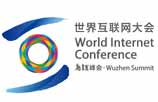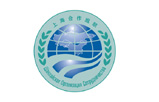Morsi diversifies Cairo's pro-Washington policies
By Li Xiaokun (China Daily) Updated: 2012-08-27 07:03Egyptian President Mohamed Morsi has begun to implement his plan of diversifying Cairo's pro-US foreign policies established by his predecessor Hosni Mubarak, Middle East observers said, as the new leader prepares to make his first-ever visit to China.
Morsi, the first president of post-revolution Egypt, chose China for his debut diplomatic visit outside the Middle East since he assumed power in June. He is also scheduled to visit Washington on Sept 23 to attend the UN General Assembly session.
The Foreign Ministry announced earlier that Morsi will pay a state visit to China from Tuesday to Thursday.
"The Chinese side attaches high importance to the visit," the ministry's spokesman Hong Lei said, adding "a slew of bilateral cooperative agreements" will be signed during the visit.
"Morsi's schedule shows that he is seeking 'balanced diplomacy' amid major countries, which puts Egypt's interests regarding survival and development first," said Dong Manyuan, deputy director of the China Institute of International Studies.
Wang Suolao, director of the Middle East Studies Center of Peking University, said Morsi's decision to visit China first also reflected the views of the Middle East region toward China.
"At present, Middle East nations in general find China to be very important, especially regarding political and economic affairs," he said.
The arrangement is also in line with the good ties that Beijing and Cairo have maintained over the last several decades, he said. Egypt was the first country from the Middle East and Africa to establish diplomatic ties with the People's Republic of China in 1956.
"For China, Morsi's visit is also significant. A new leader of a country that just went through major changes still views China as such an important country ... that is a very favorable sign for Beijing."
Wang said the core of Morsi's foreign policies is to make Egypt "an independent country", instead of accommodating to the United States.
But Morsi will also try to maintain special ties with Washington. Egypt receives at least $2 billion in aid from the United States every year, the expert said.
The Egyptian military, which receives $1.4 billion of the aid, cherishes its ties with Washington, Wang added.
The Egypt Independent newspaper quoted the Egyptian ambassador to China Ahmed Rezk as saying that Morsi's China visit is a significant "historic moment".
The paper said Morsi will take a delegation composed of ministers as well as "heavyweight" entrepreneurs from sectors including energy and telecommunications.
The Daily News Egypt newspaper said issues regarding Syria and Palestine will be on Morsi's agenda in Beijing, but his top priority will be business.
Morsi to visit Iran
On his way back from China, Morsi is also scheduled to make a four-hour visit to Iran. The trip will be the first by an Egyptian head of state to Teheran since the Islamic Revolution in 1979. Analysts said it will be a landmark visit that could serve as a cornerstone of rapid and expansive changes in ties between the two Muslim countries.
Another highlight of Morsi's visit will come as he stops in Teheran on Thursday to hand over the presidency of the Non-Aligned Movement to Iran at the NAM summit.
NAM, which was established to advocate the causes of the developing world, is composed of around 120 member states and 17 observer countries.
Egypt's presidential office spokesman Yasser Ali told the Saudi-owned Asharq al-Awsat newspaper that Morsi will discuss "ties and regional issues, especially Syria", with senior Iranian officials including Iranian President Mahmoud Ahmadinejad.
Still, he said restoring diplomatic ties with Iran is "out of the question at this stage".
Teheran severed diplomatic ties with Cairo in 1980, to protest Egypt's 1970 peace treaty with Israel and its hosting of the deposed Shah. Hosni Mubarak regarded Iran as a destabilizing factor in the Middle East.
Dong from CIIS said that despite the easing ties, it is not time for a "fundamental reversal" in relations between Egypt and Iran due to complex religion and geopolitical factors, as well as Washington's influence.
Still, Morsi's active diplomatic moves signal that "Egypt's opportunity to retake the role of a major political power in the Arab world has come", he said.
The Teheran Times on Sunday quoted Michael Hughes, a foreign policy strategist at the Washington-based New World Strategies Coalition, as saying that Morsi is going to "side with China and Iran to rebalance the region".
Egypt needs cash from the US, the IMF and the Gulf monarchies, but "in the long term (the Egyptians) want to enhance ties with China, who can fill the gap so that they don't have to rely on the West anymore", Hughes said.
Hughes also said the feelings between Cairo and Teheran are mutual.
Iran's Fars News Agency on Saturday hailed the Iran visit as "a landmark event that analysts expect to serve as a cornerstone of rapid and expansive changes not just in the two countries' ties, but in regional equations".
The visit is significant not only to Egypt and Iran, but also Iran's enemies, especially the US, which has rushed to voice its strong opposition to the world states' participation in the NAM meeting in Teheran, the FNA report said.
lixiaokun@chinadaily.com.cn






